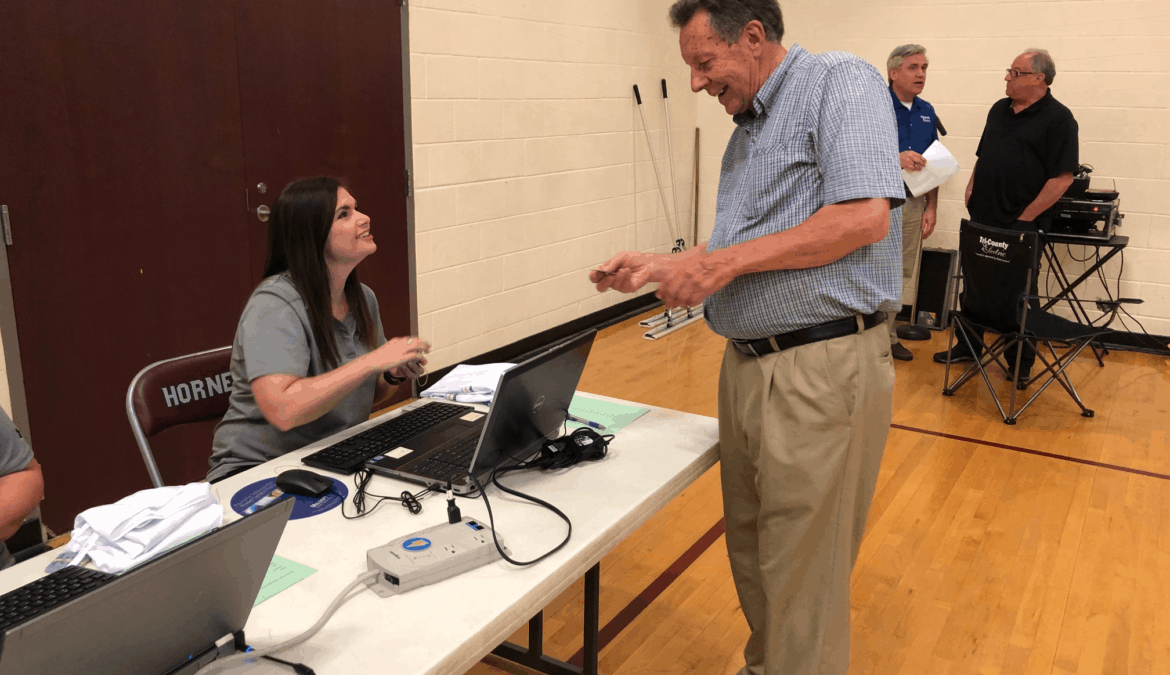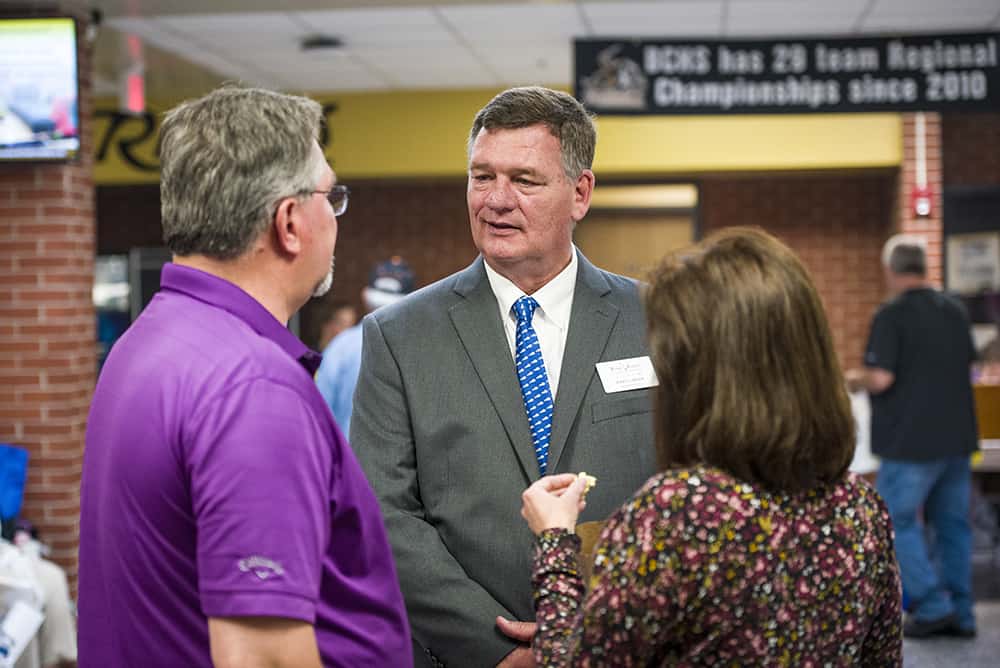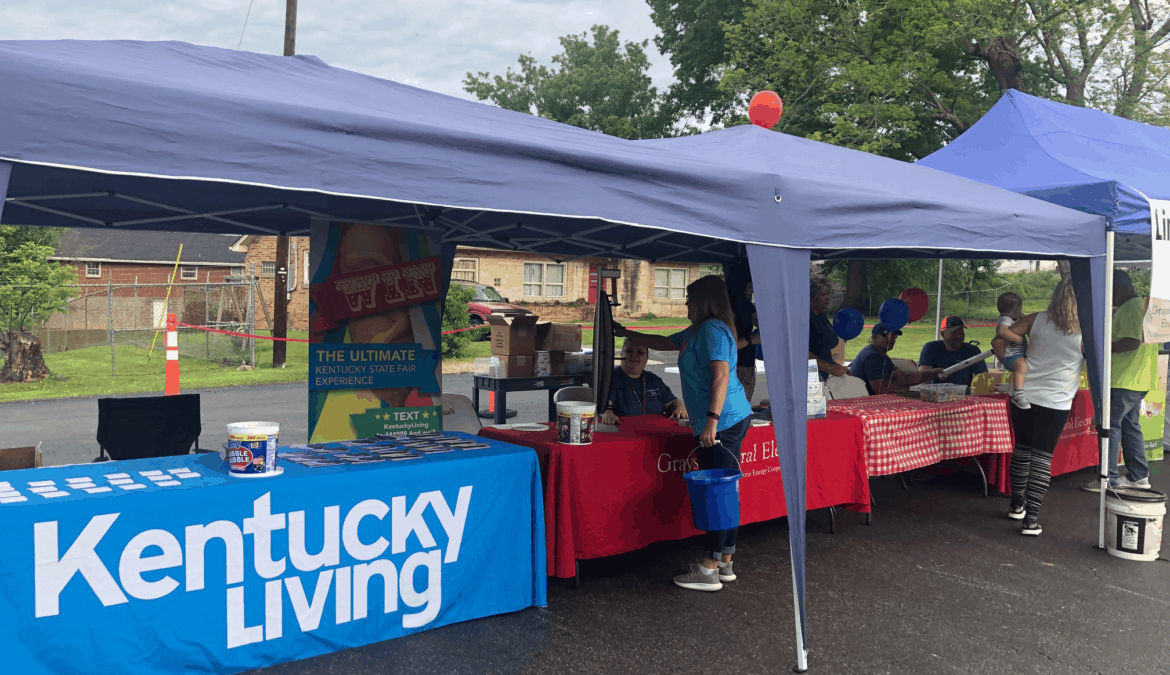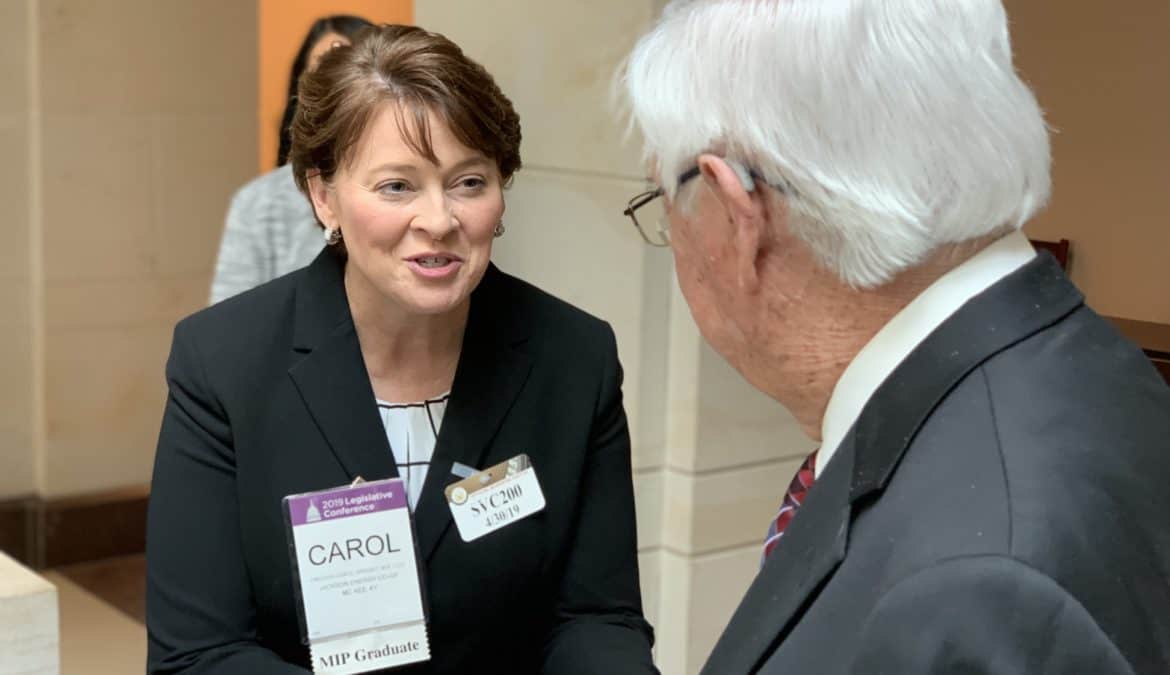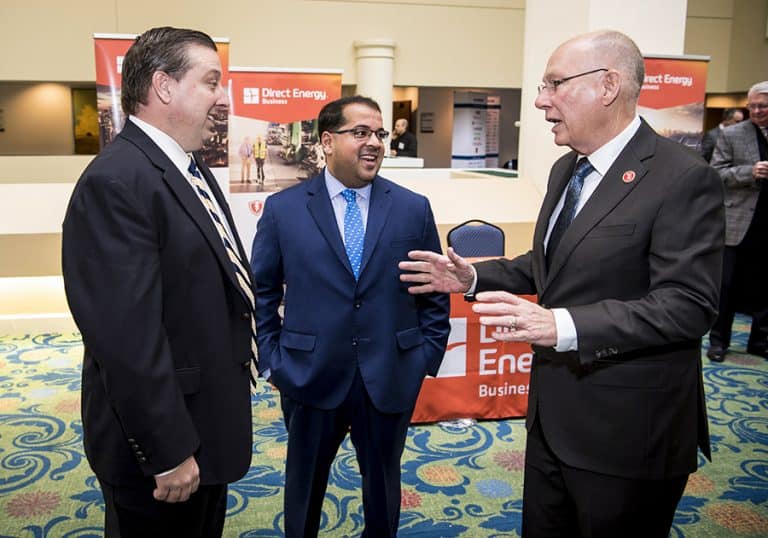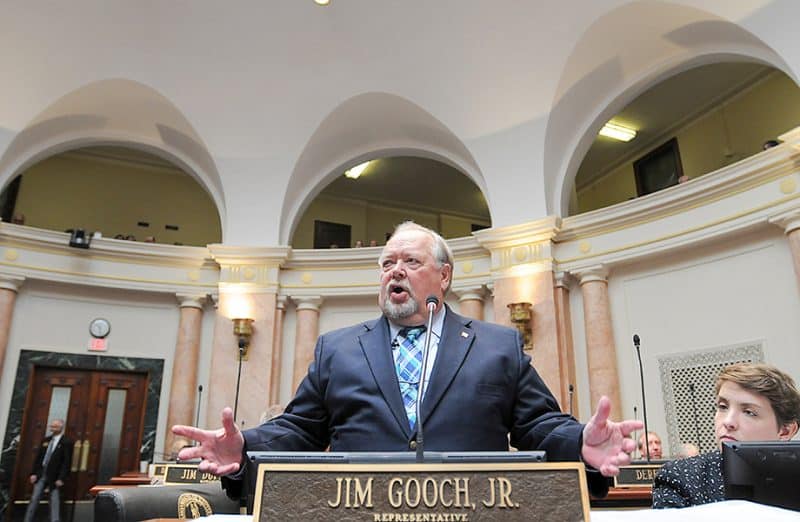Rain may have canceled some outdoor plans at the Tri-County Electric Annual Meeting, but the community and cooperative spirit were thriving inside Metcalfe County Middle School in Edmonton, Kentucky, on the evening of May 2. In the gymnasium, 220 members registered for the meeting.
After registering, members made their way around the gym to visit booths from Kentucky Living and the Tennessee Valley Authority. Kids in attendance could also register to win an iPad and get their names airbrushed on free T-shirts by Robert and Beth Hollingsworth of Brush of Air. Always a favorite, Denny Whalen was on hand to draw caricatures for members who attended.
At 7 p.m., members were encouraged to walk over to the school auditorium for the start of the business meeting. Once everyone was seated, one member won $100 cash.
Mark Linkous, Edmonton District Director, welcomed everyone and called the meeting to order. The Metcalfe County VFW Post 6281 presented the colors, and Michael Gill, principal of Metcalfe County Elementary School, along with several of his students led the pledge of allegiance. Janey Miller, Todd Young and Kelli Barrett sang a beautiful rendition of the national anthem, and retired Edmonton employee Joan Whitlow led the invocation. Co-op Attorney Ken Witcher Jr. read the notice of the meeting, as well as the proof of mailing.
Executive Vice-President and General Manager of Tri-County Electric Paul Thompson introduced business and political leaders as well as TVA and other Tri-County Electric partners. Thompson took the opportunity to recognize the co-op’s representatives on last year’s Washington Youth Tour—both were in attendance.
Officials, including David Callis, Executive Vice-President and General Manager of the Tennessee Electric Cooperative Association, took a moment to recognize the late George Cowan, a longtime Tri-County Electric board member, who died last year.
Callis spoke to the members in attendance, recalling time he spent the past week in Washington, D.C., advocating for members. “We talk about you and your needs,” Callis said.
Chris Perry, President and CEO of Kentucky Electric Cooperatives, reminded members of TV commercials from years past—including one that says, “When E.F. Hutton talks, people listen.” Perry reminded the crowd that, “Tri-County is listening to you.”
Thompson reported on Tri-County Electric’s strong financial position and reiterated the meeting theme: Your Neighbor, Your Energy. “We truly are your friends and neighbors,” Thompson said.
Nearly 60 door prizes were awarded during the evening’s activities, including the $100 Tri-County Electric gift cards, iPads, cash and the grand prize Ford Explorer won by getting name from Tammy Dixon. Tri-County Electric’s logo was displayed on the camp chairs given out to attendees, and free refreshments, including hot dogs and ice cream, were provided for everyone.
Thompson, Linkous and the board of directors expressed gratitude to Metcalfe County Middle School for the use of their lovely school, and they thanked all the employees and volunteers for making the meeting a success.
As required by the TCEMC bylaws, a meeting of the Tri-County Board of Directors was held immediately following the annual meeting. Officers elected were President Mike Miller, Scottsville District; Vice President, Mark Linkous, Edmonton District; and Secretary-Treasurer, Ray Goad, Lafayette District.

